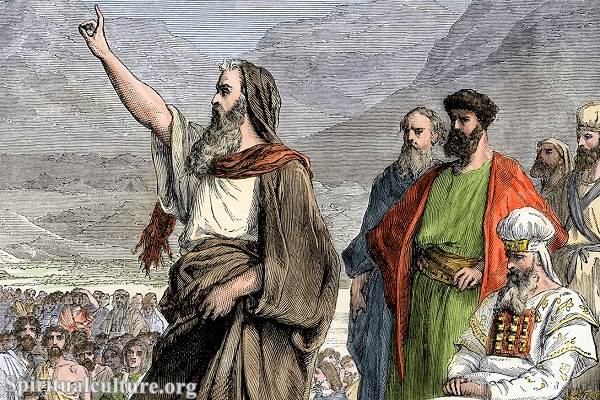Judaism beliefs
Judaism is a monotheistic religion that originated in the Middle East over 3,000 years ago. It is based on the belief in one God, who is the creator and ruler of the universe, and the belief that the Torah, which contains the laws and teachings of God, was given to the Jewish people by God through Moses.
Other key beliefs in Judaism include the importance of following the commandments and laws laid out in the Torah, the importance of performing good deeds and leading a moral life, and the belief in the coming of a Messiah. Additionally, the belief in the importance of the Jewish people and their special relationship with God is central to Judaism.

Judaism is a complex and multifaceted religion with a rich history and a wide range of beliefs and practices. Some of the key beliefs and practices in Judaism include:
- Monotheism: Judaism is a monotheistic religion, which means that Jews believe in one God, the creator and the ruler of the universe. God is believed to be all-powerful, all-knowing, and all-good and is seen as the source of all moral law and the ultimate judge of human actions.
- Torah: The Torah, which contains the Five Books of Moses (Genesis, Exodus, Leviticus, Numbers, and Deuteronomy), is considered the foundation of Jewish belief and practice. It is believed to be the direct word of God and is the source of many of the laws and commandments that guide Jewish life.
- Commandments and Laws: Jews are expected to follow a wide range of commandments and laws laid out in the Torah and other Jewish texts. These include laws related to dietary restrictions, the observance of the Sabbath and other holidays, and the performance of certain rituals and ceremonies.
- Good Deeds: Judaism strongly emphasizes the importance of performing good deeds and leading a moral life. This includes the commandments to love God and loves one’s neighbor, to pursue justice and righteousness, and to care for the poor and the oppressed.
- Messiah: Jews believe in the coming of a Messiah, a savior who will bring peace and redemption to the world. This belief is rooted in Jewish prophecy and is an important part of Jewish theology.
- Jewish People: Judaism also emphasizes the importance of the Jewish people and their special relationship with God. Jews believe that they have been chosen by God to be a “light unto the nations” and to be an example of righteousness and morality to the world.
- Israel: The Land of Israel is central to Jewish belief and practice. Many Jews believe that God promised the land to the Jewish people as an eternal inheritance and that the ingathering of the Jewish people to the land of Israel is a fulfillment of biblical prophecy.
These are some of the key beliefs and practices in Judaism. Still, it is important to note that there is a wide range of variation and diversity within the Jewish community, and different Jews may place emphasis on different aspects of the faith.
Judaism practices
Judaism is a religion that centers around the belief in one God and the observance of religious laws and traditions as outlined in the Torah, the holy book of the Jewish people. The Torah contains the Five Books of Moses, also known as the Pentateuch or the Chumash, which include the stories of creation, the Ten Commandments, and other laws and teachings.
Judaism has a wide range of practices and customs that are observed by different communities and individuals. Here are some of the most common practices:
- Daily prayer: Jews are obligated to recite a set of prayers three times a day, known as the “Shema” and the “Amidah.” These prayers include praise and gratitude to God, as well as requests for forgiveness and blessings. Many Jews also recite additional prayers and psalms throughout the day.
- Sabbath and holidays: Jews are commanded to observe the Sabbath, which begins at sundown on Friday and lasts until sundown on Saturday. During this time, Jews were not allowed to perform any work and instead spent time with family and friends, attended synagogue services, and recited special prayers. There are also several major Jewish holidays throughout the year, such as Rosh Hashanah, Yom Kippur, Sukkot, Passover, Shavuot, and Hanukkah, which are typically marked by special prayers, meals, and other observances.
- Keeping kosher: Jews are required to follow a set of dietary laws known as kashrut, which includes rules about which foods are permitted and how they are prepared. For example, Jews may not eat pork or shellfish, and meat and dairy products may not be consumed together. Additionally, meat must be ritually slaughtered and prepared in a specific way.
- Family purity: Jewish married couples are required to observe the laws of family purity, which include guidelines for when a woman is considered “ritually impure” during her menstrual cycle and how she should purify herself after her period. This includes abstaining from physical intimacy and observing specific rituals.
- Torah study: Jews are encouraged to study the Torah and other Jewish texts to connect with God and learn about their faith. Many synagogues and Jewish community centers offer classes and study groups for people of all ages.
- Bar/Bat Mitzvah: Bar Mitzvah (for boys) and Bat Mitzvah (for girls) are ceremonies that mark the coming of age for Jewish children. At age 13, a child becomes responsible for observing the commandments and participating in Jewish community life. They will have a special ceremony in the synagogue and will be called to the Torah for the first time.
- Tzedakah: Judaism strongly emphasizes acts of charity and social justice, known as Tzedakah. Jews are obligated to give a portion of their income to help those in need, and many Jews also participate in community service, philanthropy, and social justice work.
- Shabbat and Festivals: The Sabbath (Shabbat) is the most sacred day of the week, it begins on Friday night with a special candle-lighting ceremony, and the family gathers together for a special meal. Jews are not allowed to perform any work and instead spend time with family and friends, attend synagogue services, and recite special prayers. There are also several major Jewish holidays throughout the year, such as Rosh Hashanah, Yom Kippur, Sukkot, Passover, Shavuot, and Hanukkah, which are typically marked by special prayers, meals, and other observances.

